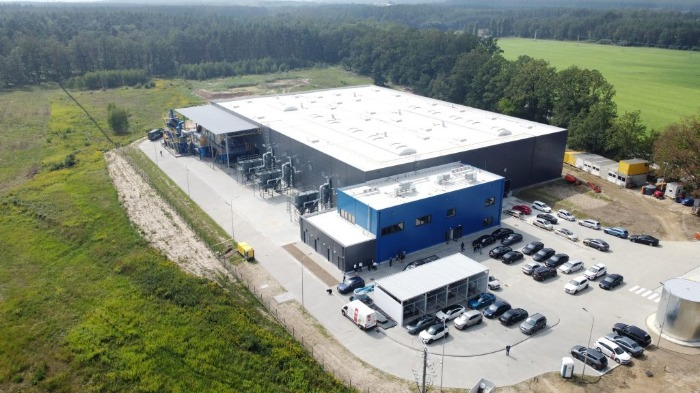Batteries
POSCO builds EV battery recycling plant in Poland
The plant will collect and recycle 10,000 tons of batteries per year from LG Energy Solution
By Aug 26, 2022 (Gmt+09:00)
1
Min read
Most Read
LG Chem to sell water filter business to Glenwood PE for $692 million


Kyobo Life poised to buy Japan’s SBI Group-owned savings bank


KT&G eyes overseas M&A after rejecting activist fund's offer


StockX in merger talks with Naver’s online reseller Kream


Mirae Asset to be named Korea Post’s core real estate fund operator



South Korea’s POSCO Holdings has built a rechargeable battery recycling plant in Poland, in line with Europe’s tougher regulations on batteries to use more recycled materials.
The construction was completed on Thursday, the company said, about two years after POSCO inked an agreement with LG Energy Solution Ltd. to collect 10,000 tons of scrap batteries per year from LG’s factory in Poland.
The plant, located in the town of Brzeg Dolny, will disassemble the used batteries and produce intermediate goods. They then will be shipped to POSCO’s battery recycling joint venture POSCO HY Clean Metal to extract minerals such as lithium, nickel, cobalt and manganese.
China’s Huayou Cobalt Co. is the joint venture partner of the recycling company.
POSCO will operate the plant in Poland in partnership with South Korea’s Sungeel HiTech Co., which holds proprietary technologies to recycle secondary batteries.
POSCO Group has been expanding into the rechargeable battery materials market beyond its flagship steel business. To build a stable battery value chain, it has invested in battery minerals mines in Australia and Argentina, while forming business partnerships with mining companies there.
The world’s No. 5 steelmaker plans to produce 300,000 tons of lithium, 220,000 tons of nickel, 610,000 tons of cathode materials and 320,000 tons of anode materials by 2030 to reach sales of 41 trillion won ($31 billion) by then.
Write to Kyung-Min Kang at kkm1019@hankyung.com
Yeonhee Kim edited this article.
More to Read
-

-
 EarningsPOSCO Holdings Q2 profit down on higher raw material costs
EarningsPOSCO Holdings Q2 profit down on higher raw material costsJul 21, 2022 (Gmt+09:00)
2 Min read -

Comment 0
LOG IN


